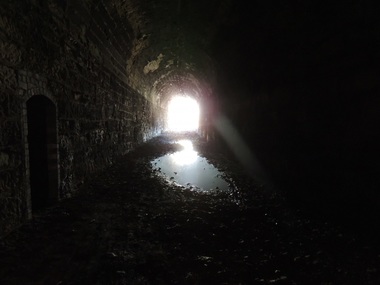
Once upon a time, a prisoner of war is dumped in an underground cave. Given enough rations of food and water to last three weeks, he is told there is an escape if he can find it. The dark is thick, the cave dank. Yet, he discerns a pinprick of light above. With his hands, he finds good-sized rocks around him and realizes he can mix water rations with mud to cement the rocks. Not wasting a minute, he devotes all his waking hours to building a mud and stone ladder.
The work is hard, but our prisoner is plucky. He knows his goal and works tirelessly to obtain it, the light inching closer day by day. Water is running out, but this only makes him work harder. Soon it is time to make his escape. Full of determination, despite weakness and dehydration, he climbs. He can see the exit! He foists himself up along the edge of the cave but his muscles are jelly. Not to be deterred, he pulls himself up, loses his grip, and falls. He dies from dehydration and wounds incurred by the fall. Days later rescuers are incredulous when they find him. Only two feet from the prisoner's body is a tunnel that would have taken him out of the cave to freedom. The escape was close to him all the time—in the darkness.
So, on a day too exhausted to get out of bed and running a fever, I stopped fighting the situation and allowed Illness to be my dark companion. I stopped trying to numb her, cover her, ignore her, hide her, or obsess about her.
And as that shady bitch Illness and I kicked back on my bed, we looked out the window and a funny thing happened—I felt grateful for her. No, I'm not Pollyanna and this wasn't a twisted version of the “Glad Game,” but Illness has made me slow down and re-prioritize, to feel grateful for simple pleasures and authentic relationship again. Through Illness, I've found a dark path to freedom.
- Krista Clement, BA, MSWI










 RSS Feed
RSS Feed